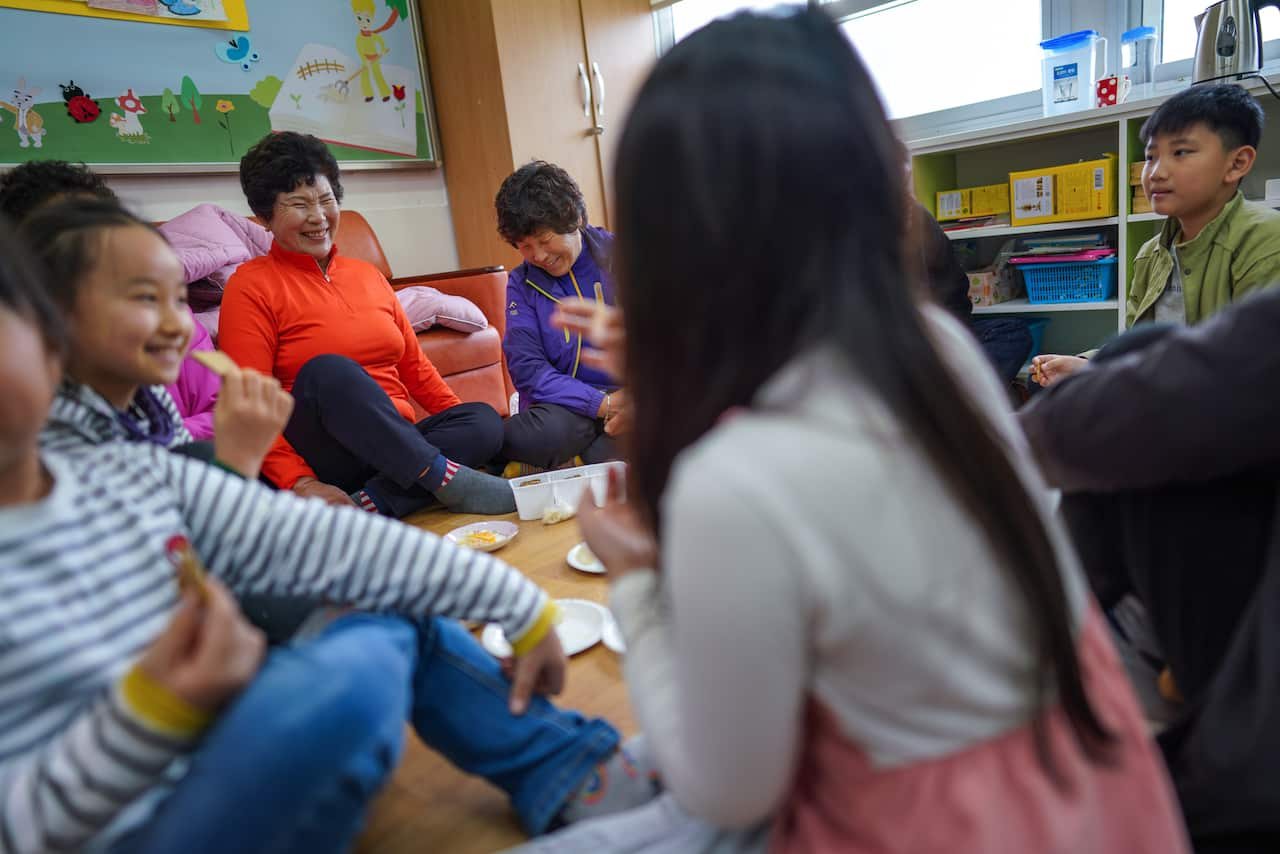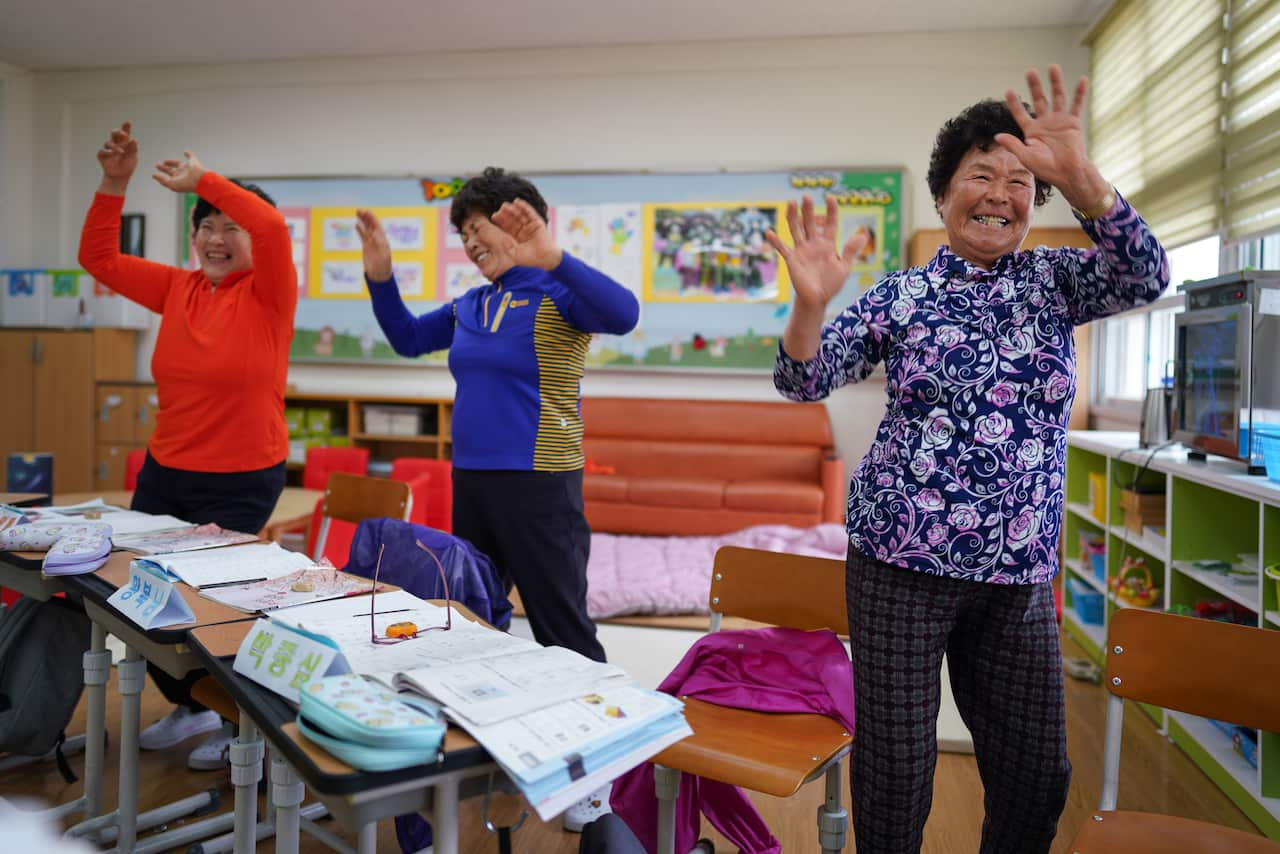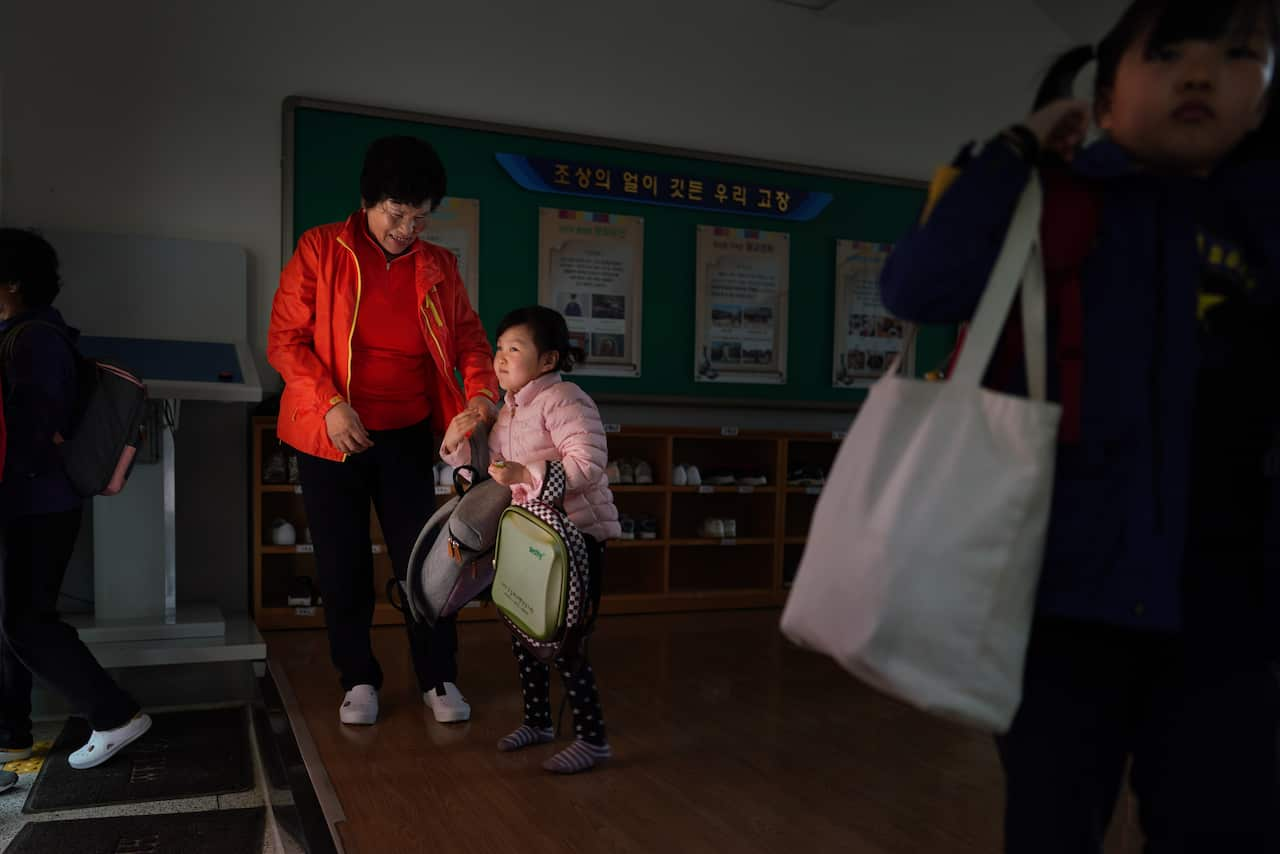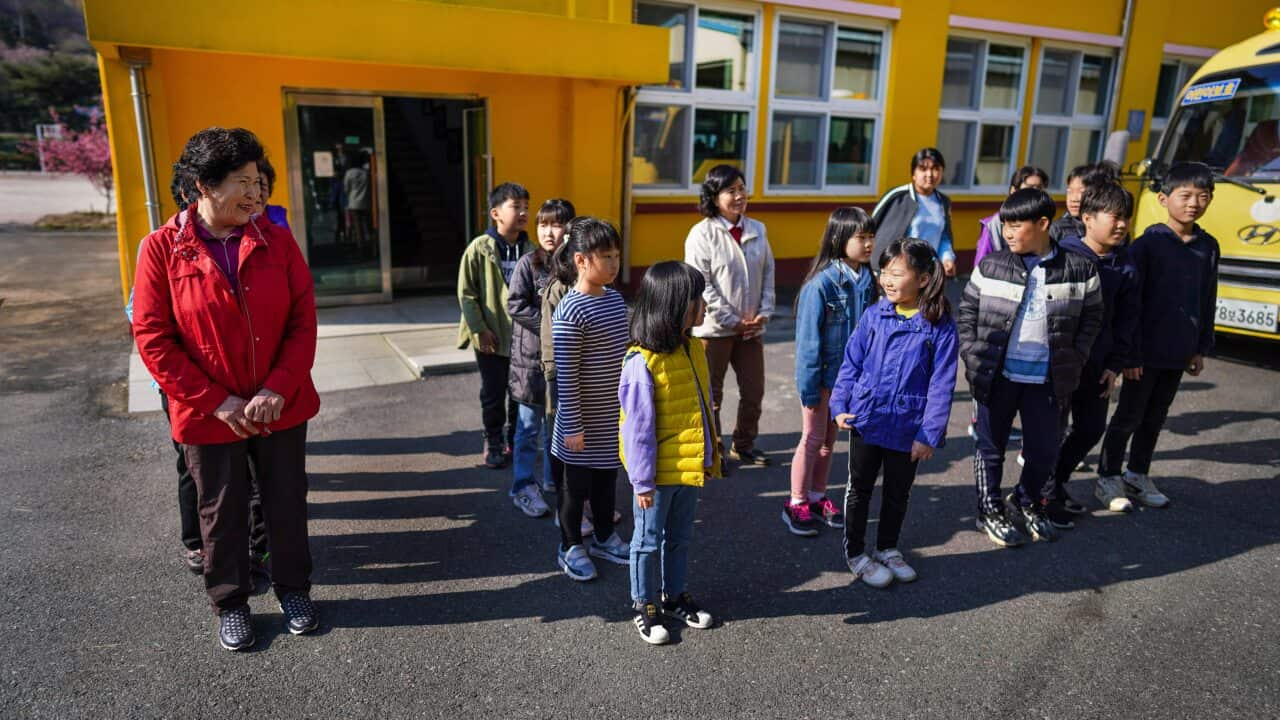Every morning on her way to school, Hwang Wol-geum, a first grader, rides the same yellow bus as three of her family members: One is a kindergartner, another a third grader, and the other a fifth grader.
Hwang is 70 — and her schoolmates are her grandchildren.
Illiterate all her life, she remembers hiding behind a tree and weeping as she saw her friends trot off to school six decades ago. While other village children learned to read and write, she stayed home, tending pigs, collecting firewood and looking after younger siblings. She later raised six children of her own, sending all of them to high school or college.
Yet it always pained her that she couldn’t do what other mothers did.
“Writing letters to my children, that’s what I dreamed of the most,” Hwang said.
Help came unexpectedly this year from the local school that was running out of school-age children and was desperate to fill its classrooms. South Korea’s birth-rate has been plummeting in recent decades, falling to less than one child per woman last year, one of the lowest in the world.
South Korea’s birth-rate has been plummeting in recent decades, falling to less than one child per woman last year, one of the lowest in the world.

Hwang Wol-geum, 70, left, and Kim Mae-ye, 64, share snacks with students. Source: The New York Times
The hardest hit areas are rural counties, where babies have become an increasingly rare sight as young couples migrated en masse to big cities for better paying jobs.
Like other rural schools, Daegu Elementary in Hwang’s district has seen its students dwindle. Now, the school has only 22 students in total.
The principal Lee Ju-young and local residents, desperate to save the 96-year-old school, came up with an idea: How about enrolling older villagers who wanted to learn to read and write?
For younger people who want to stay in the area, the future of their town depended on keeping the school alive.
Hwang and seven other women, aged 56 to 80, stepped forward, with at least four others asking to be enrolled next year.
The local education office warmed to the idea, and Hwang started attending classes last month.
Like many first graders on their first day, Hwang cried. But these were tears of joy.
”I couldn’t believe this was actually happening to me,” she said. “Carrying a school bag has always been my dream.” Park Jong-sim, 75, is a champion octopus catcher in her village. But on a recent day, she was more worried about falling behind in her elementary-school class.
Park Jong-sim, 75, is a champion octopus catcher in her village. But on a recent day, she was more worried about falling behind in her elementary-school class.

Hwang Wol-geum, 70, Kim Mae-ye, 64, and Park Jong-sim, 75, dance to a children's song. Source: The New York Times
She blinked her eyes as she tried to keep them focused on the notebook, and occasionally took her reading glasses off to wipe tears caused by eye fatigue. Enunciating words was also difficult. To practice her penmanship, she woke up before dawn.
“My memory, hand and tongue don’t work like I wish,” Park said. “But I am going to learn to write before I die. You don’t know how I feel when I go to a government office, they ask me to fill out a form and the only thing I know how to write is my name.”
Going to school became a distant dream for Park after her father died when she was 8. She spent her childhood collecting sea mustard, raising silkworms and harvesting ramie plants.
Decades ago, Korean families often focused what little resources they had on educating their sons. Many girls were expected to stay home and look after younger siblings while their parents worked outside.
Being illiterate brought many humiliations later in life.
Now she and her fellow students are determined to make up for lost time. Hwang has already hatched an ambitious plan.
Hwang has already hatched an ambitious plan.

Hwang Wol-geum, 70, and her granddaughter, Soo-hee, arrive for classes. Source: The New York Times
“I am going to run for president of the village women’s society,” she said. “People used to ask me to run, but I always declined. It’s a job for someone who can read and write.”
SOURCE THE NEW YORK TIMES




